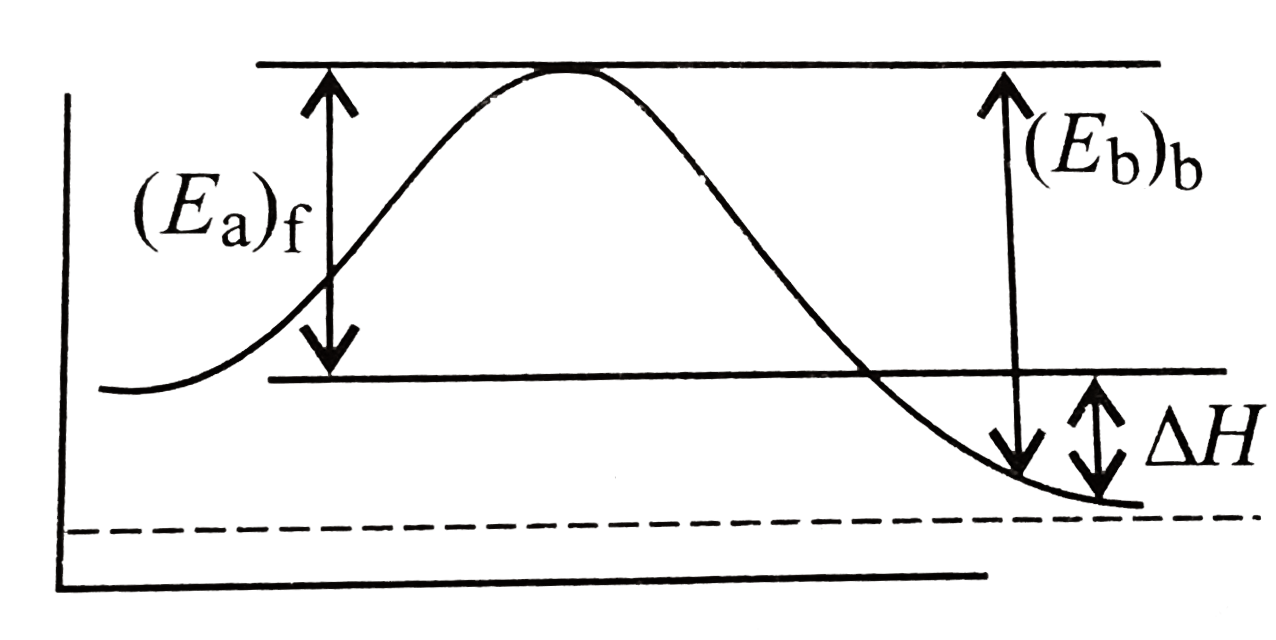The activation energy for most of the reactions is approximately 50 kJ mol−1. The value of temperature coefficient for such reactions is
approx 2
approx 3
<1
>4
The correct Answer is:A
Temperature coefficient =KT+10KT
For reactions with activation energy near 50 kT, it’s value is approximately 2.
Similar Questions
Assuming the energy of activation for most of the reactions is 52 kJ, what conclusions you draw about the effect of temperature on the rate of a reaction?
View SolutionAssuming the energy of activation for most of the reactions is 52 kJ, what conclusions you draw about the effect of temperature on the rate of a reaction?
View Solution
Knowledge Check
The activation energy for most of the reaction is approximately 50 kJ mol−1 The value of temperature coefficient for such reaction will be
A≈2B≈3C1D>4The activation energy for most of the reaction is approximately 50kJmol−1. The rate for temperature coefficient for such reaction will be
A≈2B≈3C<1D>4A catalyst lower the activation energy of a reaction from 200KJmol−1 to 100KJmol−1. The temperature at which the rate of uncatalysed reaction will be same as the rate of catalysed reaction at 25∘C is (assuming Arrheneous consant A to be same in both the case)
A50∘CB225∘CC323∘CD596∘C
A catalyst lowers the activation energy of a reaction from 20 kJ mol−1 to 10 kJ mol−1. The temperature at which uncatalysed reaction will have same rate as that of catalysed at 27°C is
View SolutionIn an exothermic reaction X→Y, the activation energy is 100kJmol−1 of X. The enthalphy of the reaction is −140kJmol−1. The activation energy of the reverse reaction Y→X is

View SolutionA catalyst lowers the activation energy of a reaction form 20kJmol−1 to kJmol−1. The temperature at which the uncatalyzed reaction will have the same rate as that of the catalyzed at 27∘C is
View SolutionThe energies of activation forward and revers reaction for A2+B2→2AB are 180 kJ mol−1 and 200 kJ mol−1 respectively. The pressure of a catalyst lowers the activation energy of both (forwar and reverse) reactions by 100kJmol−1. The magnitude of enthalpy change of the reaction (A2+B2→2AB) in the presence of catalyst will be (in Kj mol−1):
View SolutionThe activation energy of exothermic reaction A→B is 80 kJ mol−1 . The heat of reaction is 200kJmol−1. The activation energy for the reactionB→a ( in kJ/mol) will be :
View Solution
